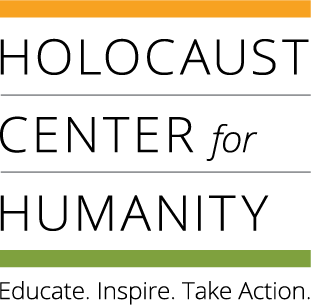The Seattle Times | September 24, 2019 | By Nina Shapiro
David Frockt, the Seattle legislator, went to San Diego this spring for a bar mitzvah, the religious initiation ceremony for a Jewish boy who has reached the age of 13. At the synagogue stood two armed guards.
“Sadly, this is the reality of Jewish life in 2019,” said Frockt, noting that weeks before the bar mitzvah, a man walked into a synagogue 20 miles north of San Diego and opened fire, killing a woman who jumped in front of the rabbi. He thinks about that, and other recent violence against Jews, when he takes his own kids to synagogue in Seattle, worrying for their safety.
“Honestly, it crosses my mind every time,” the Democrat said.
He told the story Tuesday as Jewish leaders released a statement against anti-Semitism six months in the making. They are asking elected and civic officials to sign a separate pledge to fight such hatred. About 80 have already done so, including members of Congress, the Legislature and Seattle and King County councils.
The effort started after the October shooting at a Pittsburgh synagogue that killed 11, and gained momentum amid an uptick in reported anti-Semitic incidents in Washington, along with other kinds of hate crimes.
While a fatal shooting took place in 2006 at the offices of the Jewish Federation of Greater Seattle, there’s a new and visceral unease many Jews are feeling now, said federation President and CEO Nancy Greer. “I have not experienced this level of edginess or fear,” she said.
Even so, Greer said before the news conference at the Holocaust Center for Humanity in downtown Seattle, coming up with a statement “took some time to really have deep discussions.” She explained, “The Jewish community is complex. Organizations came from across religious and political perspectives.”
One of the challenges was simply defining anti-Semitism, taking into account thorny issues like if and when criticism of Israel crosses that line.
The Anti-Defamation League (ADL) tracks reports of anti-Semitic incidents across the country taken from police documents, the media and watchdog investigations. In Washington last year, the ADL’s database cites 32 incidents, up from 20 the year before. They include many instances of graffiti, with a swastika being a common image, found everywhere from a park bathroom in Seattle to a fence in Maple Valley to a dry erase board at Whitman College in Walla Walla. A Jewish woman in Seattle also had her garage and pavement outside her home spray-painted with the words “Jew” and “(expletive) Jew thieve.”
Alt-right and white-nationalist groups have also distributed anti-Semitic flyers in the region, according to the database. Occasionally, anti-Semitism has turned confrontational, with one woman and child in Seattle verbally accosted outside by someone yelling slurs.
The ADL also collects information about other types of extremist and white-supremacist incidents, reports of which are also increasing in Washington, from 18 in 2017 to 45 last year.
Jewish leaders at the news conference acknowledged their common ground with others facing hate. Also attending was Nina Martinez, board chair of Latino Civic Alliance, an advocacy group, who spoke about verbal and physical assaults on immigrants in rural parts of the state. Even kids, she said, are spit upon, pushed and told “you’re illegal” or “go back to your country.”
She said she worked with Jewish leaders for the first time during the last legislative session on a bill that increased the penalties for hate crimes. “Phenomenal,” she said of their efforts, impressed by their energy and willingness to invest resources in the cause. The bill passed.
“They understood about our challenges,” Martinez added of Jewish leaders. “Sometimes we didn’t have to say too much.”
Still, there was a lot to talk about when it came to the statement on anti-Semitism.
Many agree such hate is on the rise, says Noam Pianko, a University of Washington (UW) professor of Jewish studies. “The real debate and difficulty is trying to understand where the anti-Semitism is coming from and how to address it.”
Liberals denounce far-right hate they feel has seeped into the mainstream under President Donald Trump, obscured by a pro-Israel stance. Conservatives find anti-Semitism in the harsh criticism of Israel on the left, and the growing boycott, divestment and sanctions movement.
Complicating it even more is that even liberal Jews have historically seen criticism of Israel the same way. In the past, Jews who took issue with Israeli policies were often labeled “self-hating Jews,” said Susan Glenn, another UW professor of Jewish studies.
Rabbi Jason Levine of Temple Beth Am, who participated in hammering out the statement, said, “it was very important to us that anti-Semitism did not become a partisan issue.”
As such, the final product, signed by 46 synagogues and Jewish organizations, says “antisemitism is found across the ideological spectrum.” While condemning “virulent antagonism toward Israel” and “drawing comparisons of contemporary Israel policy to that of the Nazis,” the statement also says, “it is important to note that criticism of Israeli government policies is not inherently anti-Semitic.”
The statement is not meant to definitively say whether any given remark or action is anti-Semitic, says Greer of the Jewish Federation, but to serve as a “starting point” for questions and conversation.
Sometimes, said Dee Simon, executive director of the Holocaust Center, “perpetrators don’t know what they’re doing.” She referred to the Mercer Island teens photographed this spring giving a Nazi salute. A week later, their parents brought them into the center, which displays pictures and artifacts documenting the history of the Holocaust.
She didn’t ask why they did what they did. She wanted to give them a tour like they were anybody else. They seemed engaged and asked lots of questions, she was pleased to note.
“One kid at a time,” she said.
